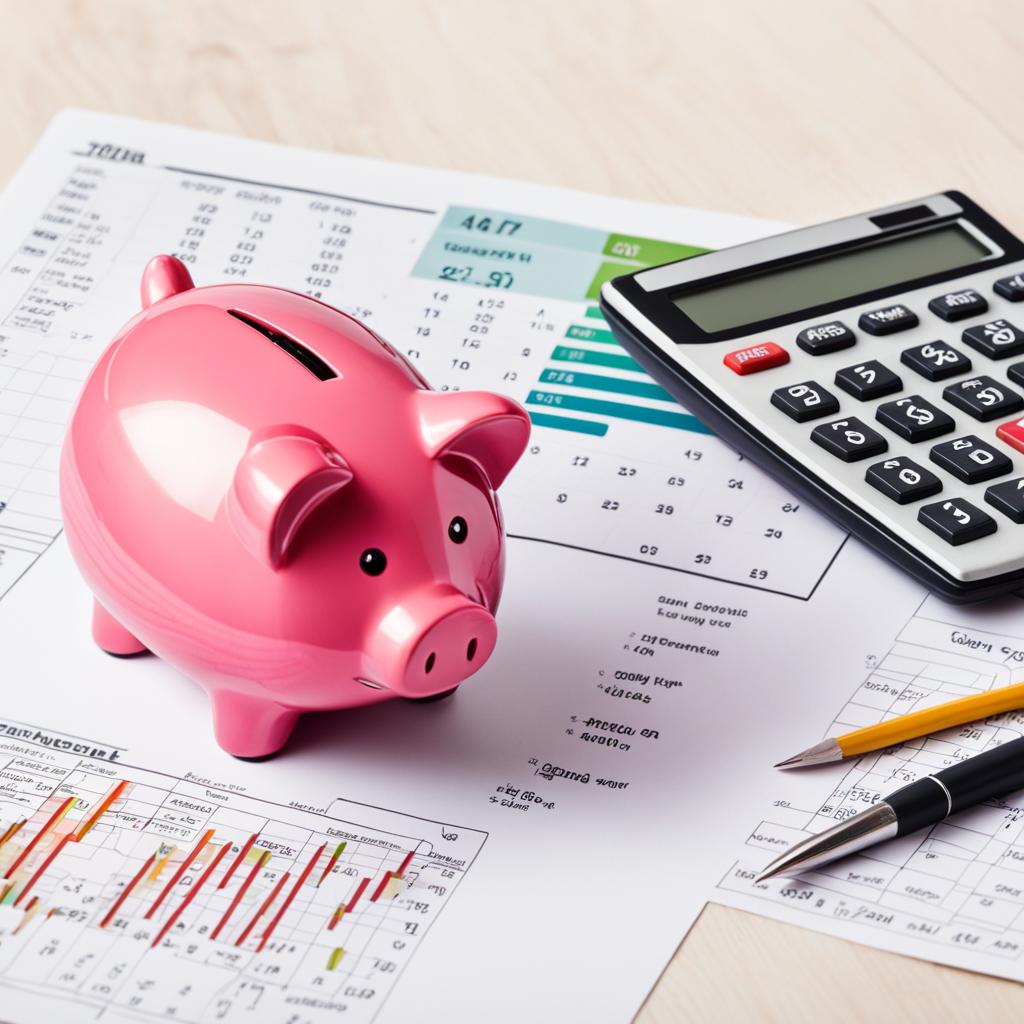Owning a house is often seen as the epitome of the American dream. It represents stability, financial security, and the pride of homeownership. But is buying a house really a good investment? As a journalist specializing in real estate, I have delved into this question to provide you with valuable insights.
When considering whether buying a house is a good investment, we must examine a range of factors. The housing market, property value trends, mortgage rates, and long-term financial implications all play a significant role. Let’s explore the pros and cons of buying a home and how it can impact your financial future.
Key Takeaways:
- Buying a house can be a good investment under the right circumstances.
- Consider the housing market, property value trends, and mortgage rates when evaluating the potential for long-term returns.
- Homeownership offers benefits beyond financial gain, such as stability and personalizing your space.
- Financial preparedness, including saving for a down payment and building good credit, is essential before purchasing a house.
- Seeking professional advice from a real estate agent, mortgage broker, or financial advisor can provide valuable guidance throughout the buying process.
The Pros and Cons of Buying a Home
Buying a home can be a significant milestone and a long-term investment. However, it’s important to consider the pros and cons before making such a financial commitment. Let’s explore the advantages and disadvantages of buying a house:
Advantages of Buying a House
- Ownership: When you buy a house, you have the pride of homeownership and the freedom to make it your own.
- Equity Building: As you make mortgage payments, you build equity in your home, which can be a valuable asset in the long run.
- Stability: Buying a house provides stability, knowing that you have a place to call home and that you won’t have to worry about frequent moves.
- Tax Advantages: Homeowners may be eligible for tax deductions, such as deducting mortgage interest and property taxes from their taxable income.
Disadvantages of Buying a House
- Financial Commitment: Owning a home comes with financial responsibilities, such as mortgage payments, property taxes, insurance, and maintenance costs.
- Limited Flexibility: When you buy a house, you commit to a specific location, making it challenging to relocate quickly if needed.
- Market Fluctuations: The value of your home can fluctuate based on market conditions, which could impact your investment.
- Higher Upfront Costs: Buying a house requires a significant upfront investment, including a down payment, closing costs, and other expenses.
It’s essential to carefully weigh the advantages and disadvantages of buying a home based on your current financial situation, long-term goals, and personal preferences.
| Advantages | Disadvantages |
|---|---|
| Owning a home provides pride and freedom | Financial commitment: mortgage payments, taxes, and maintenance costs |
| Equity building potential | Limited flexibility in terms of location |
| Stability and a place to call home | Market fluctuations can impact the value of your investment |
| Tax advantages, such as deductions on mortgage interest and property taxes | Higher upfront costs, including down payment and closing costs |
Factors Affecting Home Value
When it comes to determining the value of a home, several factors come into play. These factors can greatly influence how much a property is worth and how it appreciates over time. Understanding these elements is crucial for both homebuyers and sellers, as it allows them to make informed decisions. In this section, we will explore the key factors that affect home value and their significance in the real estate market.
1. Location: The phrase “location, location, location” holds true in real estate. The location of a home is one of the most significant factors that affect its value. Properties situated in desirable neighborhoods with convenient amenities, good schools, and low crime rates generally have higher values and appreciate at a faster rate.
2. Real Estate Market Conditions: The state of the real estate market can impact the value of a home. During a seller’s market, where demand exceeds supply, home prices tend to rise. Conversely, in a buyer’s market, where supply exceeds demand, home prices may be lower or experience slower appreciation.
3. Home Size and Features: The size and features of a home also play a role in its value. Larger homes or those with desirable features like updated kitchens, modern bathrooms, and additional living spaces generally command higher prices.
4. Interest Rates: The prevailing interest rates can influence home values. Lower interest rates make homes more affordable, which can increase demand and drive up prices. Conversely, higher interest rates may reduce affordability, leading to a slower demand and possible price stagnation.
5. Overall Economy: The health of the overall economy can impact the value of homes. During periods of economic growth and stability, home values tend to rise. Conversely, economic downturns or recessions can lead to a decline in home values.
The visual below provides a summary of the factors affecting home value:
| Factor | Impact on Home Value |
|---|---|
| Location | Affects desirability and demand for the property |
| Real Estate Market Conditions | Influences price trends and appreciation rates |
| Home Size and Features | Higher value for larger homes and desirable features |
| Interest Rates | Low rates increase affordability and demand |
| Overall Economy | Economic conditions can impact housing market stability |
By considering these factors, home buyers can make informed decisions and understand the potential for home appreciation. Likewise, sellers can strategize to maximize the value of their properties. It is essential to assess these factors in conjunction with other market conditions and consult with professionals for personalized advice on buying or selling a home.
Costs Associated with Buying a House
When considering buying a house, it is essential to take into account the various costs involved in the process. These costs include the down payment, closing costs, insurance, and the monthly mortgage payment. Let’s break down these expenses to get a clearer understanding.
1. Down Payment
The down payment is a significant upfront cost that homebuyers need to pay. It is a percentage of the total purchase price of the house and typically ranges from 3% to 20%. The higher the down payment, the lower the mortgage amount, and the monthly mortgage payment.
2. Closing Costs
Closing costs are fees associated with the purchase of a home. They include expenses such as appraisal fees, title search and insurance fees, attorney fees, and loan origination fees. On average, closing costs can range from 2% to 5% of the total purchase price of the house.
3. Insurance
Insurance is an essential aspect of owning a home. Homeowners insurance protects your property and belongings in the event of damage or loss due to theft, fire, or other covered incidents. The cost of insurance can vary based on factors such as location, property value, and coverage options.
4. Monthly Mortgage Payment
After purchasing a home, you will have a monthly mortgage payment to make. The amount of the payment depends on factors such as the purchase price of the house, down payment, interest rate, and the length of the mortgage term. It typically includes the principal amount, interest, property taxes, and insurance (known as PITI).
It’s important to budget and plan for these costs to ensure a smooth home buying process. Now, let’s take a look at a detailed breakdown of these costs in the table below:
| Expense | Percentage/Amount |
|---|---|
| Down Payment | 3% – 20% of the total purchase price |
| Closing Costs | 2% – 5% of the total purchase price |
| Insurance | Varies based on factors such as location and coverage |
| Monthly Mortgage Payment | Depends on the purchase price, down payment, interest rate, and mortgage term |
Understanding the costs associated with buying a house is crucial for determining your financial readiness and planning for homeownership. It’s important to account for these expenses and factor them into your budget to ensure a successful and sustainable home buying journey.
Home Prices Over Time
Home prices have experienced a steady upward trend in recent years, reflecting the dynamic nature of the housing market. Understanding the trends in home prices over time is crucial for both prospective buyers and sellers.
In the ever-changing real estate market, keeping an eye on housing market trends and the historical data on home prices can provide valuable insights into the potential for home price appreciation. Analyzing this data can help buyers make informed decisions and sellers set realistic expectations.
One important indicator to consider is the median home sales price. This figure represents the middle price point of all homes sold in a given area, and it can provide a snapshot of the overall market conditions. Monitoring changes in the median home sales price can help gauge the direction of the housing market.
Understanding home price appreciation is also key. Home price appreciation is the rate at which home values increase over time. It is influenced by factors such as supply and demand, economic conditions, and local market dynamics. Tracking home price appreciation can help buyers identify areas with potential growth and sellers determine the value of their properties.
“Home prices have been steadily rising, indicating a strong demand for housing and a healthy real estate market.”
Visualizing the data on home prices over time can provide a clearer understanding of the market trends. The table below highlights the median home sales price in various cities over the past five years:
| City | 2024 Median Home Sales Price | 2024 Median Home Sales Price | 2020 Median Home Sales Price | 2019 Median Home Sales Price | 2018 Median Home Sales Price |
|---|---|---|---|---|---|
| New York City | $750,000 | $700,000 | $650,000 | $600,000 | $550,000 |
| Los Angeles | $800,000 | $750,000 | $700,000 | $650,000 | $600,000 |
| Chicago | $500,000 | $475,000 | $450,000 | $425,000 | $400,000 |
| Houston | $400,000 | $375,000 | $350,000 | $325,000 | $300,000 |
It’s important to note that while home prices generally appreciate over time, this doesn’t guarantee a profit for every homeowner. Various factors, such as the local real estate market, economic conditions, and property-specific characteristics, can influence individual home value growth.
Buying or selling a home involves careful consideration of these factors and an understanding of the current housing market trends. By staying informed about home prices over time and conducting thorough research, individuals can make more informed decisions and navigate the real estate market with confidence.
When is Buying a House Not a Good Investment?
While buying a house can be a good investment in many cases, it’s important to consider when it may not be the right choice. Factors such as financial readiness and the intention for short-term ownership can impact the viability of buying a house as an investment. Let’s explore these considerations in more detail.
Financial Readiness
Buying a house is a significant financial commitment, and it’s essential to assess your readiness before taking the plunge. Here are some key factors to consider:
- Savings: Do you have enough savings for a down payment, closing costs, and potential emergencies or renovations?
- Stable Income: Is your income steady and sufficient to cover mortgage payments, property taxes, insurance, and other ongoing expenses?
- Debt-to-Income Ratio: Do you have a manageable debt-to-income ratio that will allow you to secure favorable mortgage terms?
- Job Stability: Are you confident in the stability of your employment situation?
Short-Term Ownership
The duration of your homeownership can significantly impact the financial outcome of buying a house. If you are considering short-term ownership, such as less than five years, it may not be the best investment. Here’s why:
Short-term ownership often doesn’t provide enough time for the property to appreciate in value, cover transaction costs, and recoup your initial investment. Additionally, selling a property within a short timeframe can result in higher transaction costs.
On the other hand, if you plan to stay in the house for the long term, the potential for appreciation and building equity over time may make buying a house a wise investment decision.
Comparison: Renting vs. Buying
When evaluating whether buying a house is a good investment, it’s important to consider the alternative: renting. Here’s a quick comparison:
| Factors | Renting | Buying |
|---|---|---|
| Financial Flexibility | Renting allows for more flexibility to allocate funds for other investments or unexpected expenses. | Buying ties up a significant portion of your wealth in the property, potentially limiting financial flexibility. |
| Stability | Renting provides the flexibility to move easily, which is beneficial for those who prioritize flexibility. | Buying offers stability and a sense of ownership, making it a better choice for those seeking long-term roots. |
| Equity Building | Renting does not build equity; monthly payments solely contribute to the landlord’s wealth. | Buying allows for equity building over time, potentially increasing your net worth. |
Ultimately, the decision between renting and buying depends on your personal circumstances, financial goals, and lifestyle preferences.
By considering your financial readiness, the duration of ownership, and comparing renting versus buying, you can make an informed decision about whether buying a house is a good investment for you.
Long-Term Homeownership Benefits
While financial gain is often a primary consideration when buying a house, there are a number of long-term benefits that go beyond monetary advantages. Homeownership offers several perks that can enhance your quality of life and provide stability for the future.
Building Home Equity
One of the key long-term benefits of homeownership is the ability to build home equity. Home equity refers to the difference between the market value of your property and the outstanding balance on your mortgage. As you make mortgage payments and your property appreciates in value, your equity increases. This equity can be tapped into for various purposes, such as funding home improvements or other investments.
Personalizing Your Space
Owning a home allows you the freedom to personalize and make modifications to your space according to your preferences. Whether it’s painting the walls, renovating the kitchen, or creating a backyard oasis, homeowners have the flexibility to make their house truly feel like a home.
Gaining Stability
Homeownership provides a sense of stability and permanence. When you own a home, you have the security of knowing that you have a place to call your own. This stability can be particularly valuable if you have a family or if you plan to stay in the same area for an extended period of time.
Tax Advantages
Another benefit of homeownership is the potential for tax advantages. In many countries, including the United States, homeowners can deduct mortgage interest and property taxes from their taxable income. These deductions can result in significant savings and help offset the costs of homeownership.
By considering these long-term benefits in addition to the financial aspects, you can make a more informed decision about whether buying a house is the right investment for you.

| Benefits of Long-Term Homeownership |
|---|
| Building home equity |
| Personalizing your space |
| Gaining stability |
| Tax advantages |
The Role of Appreciation in Real Estate Investing
When it comes to real estate investing, the role of appreciation cannot be understated. Appreciation refers to the increase in value of a property over time, and it plays a crucial role in the potential profitability of buying a house as an investment.
Understanding how home values can grow over time is essential for investors looking for long-term return on investment. Home value growth refers to the increase in the market value of a property, often driven by factors such as location, demand, and market conditions.
Investing in a property with the potential for significant appreciation can result in substantial gains over the long term. While short-term fluctuations in the real estate market can occur, historical data shows that properties tend to appreciate over time.
“The best investment on Earth is earth.”
– Louis Glickman
The Benefits of Appreciation in Real Estate Investing
Appreciation offers various benefits to real estate investors:
- Increased Home Value: As the value of a property appreciates, the investor can enjoy increased equity, which can be leveraged for further investments or used to generate cash flow.
- Passive Income: Appreciation can lead to higher rental rates for investment properties, allowing investors to generate passive income and achieve a positive cash flow.
- Wealth Accumulation: Over time, the appreciation of a property can result in significant wealth accumulation, making real estate investing an attractive long-term investment strategy.
It is important to note that appreciation alone does not guarantee profitability in real estate investing. Factors such as property management, market conditions, and the overall economy can also impact the success of an investment. However, understanding and considering the potential for appreciation is a fundamental aspect of evaluating the viability of buying a house as an investment.
| Year | Average Home Value Increase |
|---|---|
| 2010 | 4% |
| 2015 | 8% |
| 2020 | 12% |
| 2025 | 16% |
The table above illustrates the average home value increase over a span of five years. As demonstrated, home values tend to appreciate over time, showcasing the potential for long-term growth in real estate investments.
Considering the role of appreciation in real estate investing is crucial for investors looking to maximize their returns and build wealth over the long term. By understanding how home values can grow and evaluating the potential for appreciation, investors can make informed decisions and capitalize on the opportunities presented by the real estate market.
Renting vs. Buying: Financial Considerations
When it comes to deciding between renting and buying a home, financial considerations play a crucial role. Both options have their pros and cons, and it’s essential to weigh the costs and benefits before making a decision. Let’s explore the financial aspects of renting versus buying and how they can impact your long-term financial goals.
The Cost Comparison
One of the primary factors to consider when comparing renting and buying is the cost. Renting typically involves monthly rental payments, while buying a home entails upfront costs like a down payment, closing costs, and ongoing expenses such as mortgage payments, homeowners insurance, property taxes, and maintenance.
While renting may seem more affordable in the short term, buying a home can potentially build equity over time. Equity is the value you own in your home, and as you pay down your mortgage and the property’s value appreciates, you can build wealth. Renting, on the other hand, doesn’t offer the same opportunity for equity building.
To determine which option is more financially viable, it’s essential to compare the total cost of renting over a specific period with the cost of buying and taking into account potential equity growth. Let’s take a look at a cost comparison table:
| Renting | Buying | |
|---|---|---|
| Upfront Costs | Security Deposit | Down Payment, Closing Costs |
| Ongoing Costs | Monthly Rent | Mortgage Payment, Property Taxes, Insurance, Maintenance |
| Equity Building | No Equity | Potential for Equity Growth |
This table provides a basic comparison of the upfront and ongoing costs as well as the potential for equity building. While it may not capture every detail of your specific situation, it can serve as a starting point to evaluate the financial implications of renting versus buying.
Other Financial Considerations
Aside from the cost comparison, there are other financial factors to consider. Homeownership may provide potential tax advantages, such as deducting mortgage interest and property taxes. Additionally, owning a home can offer stability and the freedom to personalize your living space.
On the other hand, renting offers flexibility since you’re not tied down to a specific property and location. This can be advantageous if you anticipate changes in your job or personal life that may require relocation in the near future.
Ultimately, the decision to rent or buy depends on various factors, including your financial situation, lifestyle, long-term goals, and the current housing market conditions. It’s crucial to evaluate your priorities and consult with professionals such as real estate agents, mortgage brokers, and financial advisors to make an informed decision.

Buying a House as a Homeowner vs. Investor
When considering buying a house, it’s essential to understand the differences between purchasing a property as a homeowner and as an investor. Your goals and objectives play a crucial role in determining which approach is right for you.
If you plan to use the house as your primary residence, buying as a homeowner offers several advantages. It provides you with a place to live and call your own, allowing you to personalize the space according to your preferences. Additionally, homeownership can bring stability, as you have control over your living situation and are not subject to potential rent increases.
On the other hand, buying a house as an investor involves purchasing a property with the intention of generating income or capital appreciation. This can be through renting it out to tenants or selling it at a later date for a profit. If you have a keen interest in real estate investment and have the financial capacity to handle multiple properties, buying as an investor can be a viable option to grow your wealth.
Primary Residence vs. Rental Property
One key distinction between buying as a homeowner and as an investor is the intended use of the property. As a homeowner, the purchased house serves as your primary residence, providing you with a place to live and create a home for yourself and your family.
However, when buying as an investor, the goal is to generate income or long-term returns through rental property. This involves finding suitable tenants, managing the property, and ensuring a steady stream of rental income.
Real Estate Investment Strategies
The approach to buying a house as a homeowner vs. investor also differs in terms of long-term investment strategies. As a homeowner, the focus is often on creating a stable and comfortable living environment. While property appreciation can be a consideration, it is typically secondary to factors such as location, amenities, and personal preferences.
As an investor, the primary goal is to maximize investment returns. This involves analyzing potential rental income, conducting thorough research on market trends, and identifying properties with strong potential for appreciation or high rental demand.
Decision-Making Process
When deciding between buying as a homeowner or investor, it’s important to consider your financial situation, risk tolerance, and long-term goals. Evaluate your ability to handle the responsibilities of being a homeowner or landlord, as well as your readiness to take on the potential financial risks and rewards of real estate investment.
Ultimately, buying a house as a homeowner or investor depends on your individual circumstances and objectives. Clarifying your goals and understanding the implications of each approach can help guide your decision-making process and lead you to the right path.
Comparison of Buying as a Homeowner vs. Investor
| Aspect | Buying as a Homeowner | Buying as an Investor |
|---|---|---|
| Intended Use | Primary residence | Rental property |
| Focus | Stability, personalization | Income generation, capital appreciation |
| Investment Strategy | Property appreciation as secondary | Maximizing returns, rental income |
| Responsibilities | Maintaining and personalizing the property | Finding tenants, managing property |
| Financial Considerations | Affordability, mortgage rates | Rental income, potential ROI |
Considering the factors outlined above, carefully assess your situation and goals to determine whether buying a house as a homeowner or investor aligns with your needs and aspirations in the real estate market.
Timing the Housing Market
When it comes to buying a house, timing can be everything. The housing market is influenced by various factors that can affect your purchase decision. Understanding market conditions, whether it’s a buyer’s market or a seller’s market, can help you make a more informed choice.
Market conditions refer to the state of the real estate market at a given time. It is essential to assess these conditions to determine whether it is favorable to buy a house. In a buyer’s market, the demand for homes is lower than the supply, resulting in more negotiating power for buyers. On the other hand, in a seller’s market, there is high demand and limited inventory, giving sellers an advantage.
It’s important to remember that trying to time the housing market perfectly is challenging. Instead, focus on identifying favorable market conditions that align with your needs and goals.
Before making a decision, consider factors such as interest rates, economic indicators, and local market trends. Low interest rates can make homeownership more affordable, while economic indicators can provide insights into job growth and overall market stability. Keeping an eye on local market trends can help you gauge whether prices are rising or falling.

Ultimately, the decision to buy a house should align with your personal circumstances and long-term goals. If you’re looking for a home to live in for an extended period, market timing may be less critical. However, if you’re purchasing an investment property or have specific financial goals, timing the market can play a more significant role in your decision-making process.
Choosing the Right Location to Buy a House
When it comes to buying a house, one of the most crucial factors to consider is the location. The right location can significantly impact the potential value and attractiveness of a property. It is important to analyze neighborhoods and assess the property value potential before making a decision.
Location plays a vital role in determining the long-term prospects of a property. A well-chosen location can offer a range of benefits, such as easy access to amenities, good school districts, low crime rates, and desirable neighborhood characteristics. On the other hand, a poorly chosen location can have detrimental effects on property value and overall quality of life.
An effective way to analyze a neighborhood is to consider its current and future development potential. Look for signs of growth, such as new infrastructure projects, commercial developments, and improvements in public transportation. These indicators can suggest that the neighborhood is on an upward trajectory, which may result in increased property value over time.
Additionally, assess the desirability of the neighborhood by considering factors such as proximity to parks, shopping centers, restaurants, and entertainment options. A neighborhood with a high demand for housing and a strong sense of community can be an excellent choice for prospective buyers.
To gain a comprehensive understanding of the property value potential, it is essential to research the local real estate market. Look at historical trends and analyze data on property appreciation and market conditions. This information can help determine whether the area has experienced consistent growth or if it is subject to volatility.
Remember, a reputable real estate agent can provide valuable insights and guidance during the location selection process. Their expertise and knowledge of the local market can help steer you in the right direction.
“Location, location, location – the three most important factors in determining the desirability and value of a property.” – Unknown
By carefully considering the importance of location and conducting a thorough neighborhood analysis, you can increase the chances of finding a property with high property value potential. Take the time to explore different areas, weigh the pros and cons, and make an informed decision that aligns with your long-term goals.
| Factors | Key Considerations |
|---|---|
| Proximity to amenities | Access to parks, schools, shopping centers, restaurants, and entertainment options |
| Development potential | New infrastructure projects, commercial developments, and improvements in public transportation |
| Market trends | Historical property appreciation, market volatility, and current conditions |
| Neighborhood desirability | Demand for housing, community atmosphere, and sense of safety |
The Importance of Financial Preparedness
When it comes to buying a house, being financially prepared is crucial for a successful purchase. It involves several important steps that will help you navigate the process with confidence. From saving for a down payment to managing your credit score and budgeting for homeownership, these key elements are essential to ensure you are in a strong financial position.
Saving for a Down Payment
One of the first steps in financial preparedness for buying a house is saving for a down payment. A down payment is a substantial upfront payment that you make towards the purchase price of the property. It is typically a percentage of the total home price, and the amount required can vary depending on the type of loan and other factors. Saving for a down payment shows lenders that you are committed to the purchase and can help you secure better loan terms.
Managing Your Credit Score
Your credit score plays a significant role in the homebuying process. It demonstrates your creditworthiness to lenders and influences the interest rate you may qualify for on your mortgage. To improve your credit score, focus on making timely bill payments, keeping your credit card balances low, and avoiding opening new lines of credit. Monitoring your credit regularly and addressing any errors or discrepancies will also help maintain a strong credit profile.
Budgeting for Homeownership
Once you have saved for a down payment and have a good credit score, it’s essential to create a realistic budget for homeownership. Consider not only the monthly mortgage payment but also other expenses like property taxes, homeowners insurance, and maintenance costs. It’s crucial to be prepared for unexpected expenses that may arise during homeownership.
“Financial preparedness is the foundation for a successful home purchase. Saving for a down payment, managing your credit score, and budgeting for homeownership are key elements to ensure a smooth and secure transaction.”
By prioritizing financial preparedness for buying a house, you set yourself up for a more confident and successful homebuying journey. Take the time to save for a down payment, manage your credit score, and create a comprehensive budget to ensure a positive homeownership experience.

Seeking Professional Advice
When it comes to making one of the biggest financial decisions of your life, seeking professional advice is essential. Working with experts in the real estate industry can provide you with valuable insights and guidance that can help you navigate the complexities of buying a house.
Here are three key professionals you should consider consulting:
1. Real Estate Agent
A knowledgeable and experienced real estate agent can be your trusted advisor throughout the homebuying process. They have a deep understanding of the local market, can help you find properties that meet your criteria, and negotiate on your behalf. A real estate agent will guide you through the entire transaction, ensuring you have the best possible outcome.
2. Mortgage Broker
Securing a mortgage is a crucial step in buying a house. A mortgage broker can help you navigate the various loan options available, compare interest rates, and find a mortgage that suits your financial situation. They have access to a wide range of lenders and can streamline the loan application process, saving you time and effort.
3. Financial Advisor
Buying a house involves significant financial implications that extend beyond the initial purchase. A financial advisor can help you assess your financial readiness, determine how much you can afford, and create a long-term financial plan that aligns with your homeownership goals. They can also provide insights on managing your overall financial well-being and help you make informed decisions regarding your investment.
Seeking professional advice from a real estate agent, mortgage broker, and financial advisor can provide you with the knowledge and support you need to make confident decisions when buying a house.
The Future of Buying a House as an Investment
As we move forward into the future, the dynamics of buying a house as an investment are expected to evolve. The housing market trends, changing demographics, and economic factors will all play a significant role in shaping the future of real estate investments.
The housing market is known for its cycles, where prices can fluctuate based on supply and demand. Staying abreast of these trends can give investors valuable insights into when to buy or sell a property. Understanding the market conditions and analyzing data on home price appreciation can help investors make informed decisions.
Another factor that will impact the future of buying a house as an investment is the changing demographics. As the population grows and shifts, the demand for housing will change accordingly. For example, the rise of the millennial generation as a key demographic group will likely influence the types of properties in demand.
Economic factors also have a crucial role to play in the future of real estate investments. Interest rates, inflation, job market conditions, and overall economic stability can all impact the housing market. Investors need to carefully evaluate these economic factors to make wise investment decisions.
It is important for investors to stay informed about these factors and adapt their strategies accordingly. By keeping a close eye on the housing market trends, changing demographics, and economic conditions, investors can position themselves for success in the future.
Below is a table highlighting the key factors that can influence the future of buying a house as an investment:
| Factors Influencing the Future of Buying a House as an Investment |
|---|
| Housing market trends |
| Changing demographics |
| Economic factors |
Staying proactive and adaptable in the ever-changing real estate market will be essential for investors looking to make profitable decisions in the future.
Conclusion
In conclusion, buying a house can be a good investment with long-term benefits. However, it is important to carefully consider various financial considerations before making a decision. Assessing your financial readiness, including saving for a down payment and having a good credit score, is essential in achieving successful homeownership.
Furthermore, it is crucial to evaluate the potential long-term benefits of buying a house. Homeownership offers advantages such as building home equity, personalizing your space, gaining stability, and taking advantage of tax benefits. These benefits can contribute to your overall financial well-being and enhance your quality of life.
Ultimately, the decision to buy a house as an investment should align with your personal goals and circumstances. It is advisable to seek professional advice from a real estate agent, mortgage broker, or financial advisor to navigate the process and make informed decisions. By carefully considering the financial considerations, long-term benefits, and personal goals, you can determine if buying a house is the right investment path for you.
FAQ
Is buying a house really a good investment?
Buying a house can be a good investment under the right circumstances. However, it also comes with its drawbacks. Let’s explore the pros and cons of buying a home.
What factors can affect the value of a home?
Several factors can influence the value of a home, including location, real estate market conditions, home size, interest rates, and the overall economy.
What are the costs associated with buying a house?
The costs of buying a house include the down payment, closing costs, insurance, and the monthly mortgage payment.
How have home prices changed over time?
Home prices have been on the rise in recent years. Understanding housing market trends and historical data on home prices can provide insights into potential price appreciation.
Are there situations where buying a house is not a good investment?
Yes, factors such as financial readiness and the intention for short-term ownership can impact the viability of buying a house as an investment.
What are the long-term benefits of homeownership?
Homeownership offers benefits beyond financial gain, including building home equity, personalizing your space, gaining stability, and taking advantage of tax benefits.
How does appreciation play a role in real estate investing?
Appreciation is crucial in real estate investing. Understanding how home values can grow over time and considering the long-term returns on investment can help gauge the potential profitability of buying a house.
Should I rent or buy a house based on financial considerations?
Comparing the costs of renting and buying, as well as considering the potential for building equity, can help determine the better financial decision for you.
What are the differences between buying a house as a homeowner and an investor?
The decision to buy a house can vary depending on whether you plan to use it as a primary residence or an investment property. Understanding these differences and considering your goals can guide your decision-making process.
How can I time the housing market?
Trying to time the housing market can be challenging. Factors such as market conditions, buyer’s market, or seller’s market can influence the timing of your purchase.
How important is the location of the property in buying a house?
Location plays a significant role in the potential value and attractiveness of a property. Analyzing neighborhoods and considering the property value potential can help guide your decision when choosing a location to buy a house.
What financial preparedness is required for buying a house?
Being financially prepared is essential when buying a house. This includes saving for a down payment, having a good credit score, and budgeting for homeownership.
Should I seek professional advice when buying a house?
Seeking professional advice can provide valuable insights and guidance. Working with a real estate agent, mortgage broker, or financial advisor can help you make informed decisions throughout the process.
What does the future hold for buying a house as an investment?
The future of buying a house as an investment is influenced by various factors, including housing market trends, changing demographics, and economic conditions. Staying informed about these factors can help you stay ahead in the real estate market.
Is buying a house a good long-term investment?
Buying a house can be a good long-term investment under the right circumstances. It’s important to consider the financial considerations, long-term benefits, and personal goals to determine if buying a house is the right investment for you.
Our Friends
- https://money.com/is-buying-a-house-a-good-investment/
- https://www.bankrate.com/real-estate/buying-a-house-good-investment/
- https://www.rocketmortgage.com/learn/is-buying-a-house-a-good-investment
Money posts:
 How To Invest In Real Estate (2024)
How To Invest In Real Estate (2024)
 Rent or Buy? How I Made $350,000 in 4 Years
Rent or Buy? How I Made $350,000 in 4 Years
 13 Best Real Estate Investing Books (2024)
13 Best Real Estate Investing Books (2024)
 How to Invest in Real Estate with Little Money
How to Invest in Real Estate with Little Money
 How To Build A Real Estate Empire Before You’re 30
How To Build A Real Estate Empire Before You’re 30
 How to Invest in Rental Properties: A 4-Step Guide
How to Invest in Rental Properties: A 4-Step Guide
 How to Flip Houses – A Guide for New Real Estate Investors
How to Flip Houses – A Guide for New Real Estate Investors
 Rental Property Due Diligence Checklist (2024)
Rental Property Due Diligence Checklist (2024)

